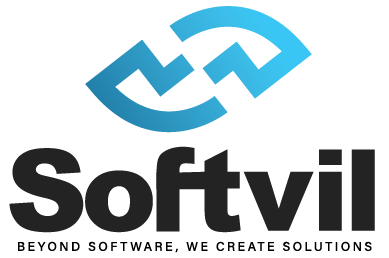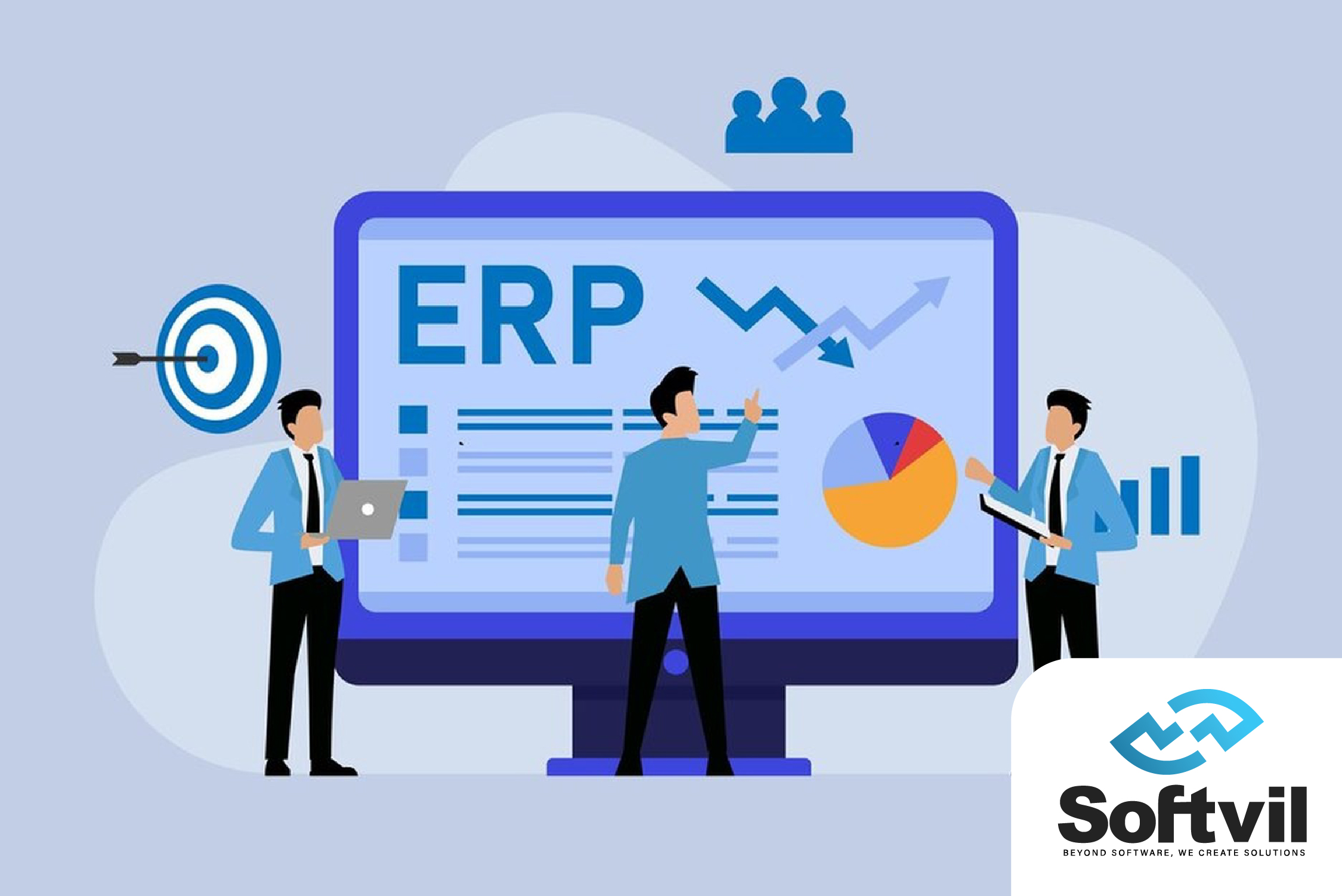The IFS ERP system stands as a beacon of efficiency and integration, promising streamlined operations and heightened productivity in the ever-evolving realm of enterprise management. Yet, harnessing its full potential requires more than just software installation; it demands strategic guidance and meticulous planning. Consultation emerges as the linchpin in this transformative process.
Navigating the implementation of IFS ERP without expert consultation is akin to sailing uncharted waters. It’s fraught with uncertainties and risks that could undermine the system’s efficacy and organizational objectives. Hence, the significance of consultation cannot be overstated.
In this article, we embark on a journey to unravel the complexities of IFS ERP consultation, serving as a guiding compass for organizations poised to embark on this transformative endeavor. By illuminating the crucial role of consultation, delineating key implementation phases, and offering actionable insights, we equip readers with the knowledge and foresight needed to navigate the IFS ERP landscape with confidence and clarity.
Exploring the Depths of IFS ERP

Delving into IFS ERP
A robust IFS ERP system offers a comprehensive suite of features and functionalities designed to streamline business operations and drive growth. With modules covering finance, human resources, supply chain management, and more, IFS ERP provides a holistic approach to enterprise management.
Unveiling the Features and Capabilities
- Finance Management: Enables efficient financial planning, budgeting, and reporting, fostering transparency and accuracy in financial operations.
- Supply Chain Management: Facilitates end-to-end visibility and control over supply chain processes, optimizing inventory management and enhancing procurement efficiency.
- Human Resources: Streamlines HR processes such as payroll, recruitment, and talent management, empowering organizations to effectively manage their workforce.
- Project Management: Provides tools for project planning, resource allocation, and performance tracking, ensuring timely project delivery and resource optimization.
Reaping the Rewards: Benefits for Businesses
- Enhanced Efficiency: IFS ERP streamlines processes, eliminates redundant tasks, and improves workflow efficiency, leading to cost savings and increased productivity.
- Improved Decision-Making: With real-time data access and analytics capabilities, IFS ERP empowers businesses to make informed decisions and adapt to changing market conditions swiftly.
- Scalability and Flexibility: IFS ERP is scalable and flexible, capable of accommodating the evolving needs of businesses across various industries, from small startups to large enterprises.
Industries Embracing IFS ERP
- Manufacturing: IFS ERP is widely adopted in the manufacturing sector, where it helps optimize production processes, manage inventory effectively, and ensure compliance with industry regulations.
- Construction and Engineering: In the construction and engineering industries, IFS ERP facilitates project management, resource allocation, and subcontractor collaboration, driving project success and profitability.
- Aerospace and Defense: With its robust capabilities for complex project management and stringent compliance requirements, IFS ERP is a preferred choice for aerospace and defense contractors.
In essence, understanding the features, benefits, and industry applications of IFS ERP is essential for organizations seeking to leverage its transformative potential and achieve sustainable growth.
The Crucial Role of Consultation in IFS ERP Implementation

Understanding the Significance of ERP Consultation
ERP Consultation emerges as a cornerstone in the successful implementation of IFS ERP, offering invaluable expertise and guidance throughout the process.
Importance of Consultation in Successful ERP Implementation
- Strategic Planning: Consultants help businesses devise a strategic roadmap, aligning IFS ERP implementation with organizational goals and objectives. They conduct thorough assessments of current processes and systems, identifying areas for improvement and devising tailored solutions.
- Expertise and Experience: Leveraging consultants’ expertise and experience mitigates risks and ensures a smoother implementation process. They bring in-depth knowledge of IFS ERP systems and best practices, enabling businesses to make informed decisions and avoid common pitfalls.
- Customization and Optimization: Consultants assist in customizing the IFS ERP system to meet specific business needs, optimizing its functionality and performance. They tailor configurations, workflows, and modules to align with unique business processes, maximizing efficiency and user adoption.
Why Businesses Should Seek Professional Consultation for IFS ERP
- Maximizing ROI: Professional consultation maximizes return on investment by ensuring efficient utilization of resources and minimizing implementation setbacks. Consultants help businesses identify cost-effective solutions, streamline processes, and achieve tangible business outcomes.
- Risk Mitigation: Consultants anticipate and address potential challenges, minimizing risks and disruptions during the implementation process. They develop contingency plans, identify dependencies, and proactively resolve issues to keep the project on track and within budget.
- Knowledge Transfer: Through consultation, businesses gain valuable insights and knowledge, empowering internal teams to effectively manage and maintain the ERP system post-implementation. Consultants provide training, documentation, and ongoing support, enabling employees to leverage the full capabilities of the IFS ERP system.
Common Challenges Faced During IFS ERP Implementation
- Lack of Alignment: Without consultation, there’s a risk of misalignment between ERP implementation and business objectives, leading to inefficiencies and missed opportunities. Consultants facilitate stakeholder alignment, fostering collaboration and buy-in across departments to ensure the ERP solution meets organizational needs.
- Resource Constraints: Businesses may lack the necessary expertise and resources to handle complex implementation tasks, resulting in delays and cost overruns. Consultants supplement internal teams, providing additional manpower, specialized skills, and project management expertise to accelerate implementation timelines and mitigate resource constraints.
- Resistance to Change: Resistance from employees and stakeholders can impede the implementation process, highlighting the need for effective change management strategies. Consultants develop communication plans, training programs, and organizational change initiatives to address resistance and foster a culture of adoption and continuous improvement.
In essence, the role of ERP consultation in IFS ERP implementation cannot be overstated. By providing strategic guidance, expertise, and support, consultants play a vital role in ensuring the success and sustainability of ERP initiatives within organizations. Their involvement not only accelerates implementation timelines and minimizes risks but also empowers businesses to unlock the full potential of their IFS ERP system.
Navigating Success: A Roadmap for IFS ERP Consultation

Assessment and Planning
Conducting an initial assessment of business needs and goals lays the foundation for a successful IFS Software implementation. This involves analyzing existing processes, identifying pain points, and defining clear objectives. Consultants work closely with stakeholders to understand business requirements and craft a comprehensive implementation plan tailored to the organization’s specific needs and goals.
Vendor Selection
Choosing the right IFS Software vendor is critical for the success of the implementation. Consultants assist in evaluating vendors based on factors such as expertise, experience, and support services. By conducting thorough research and vendor assessments, organizations can select a vendor that aligns with their goals, budget, and long-term vision.
Customization and Configuration
Customization and configuration of the IFS Software system ensure that it meets the unique requirements of the organization. Consultants collaborate with stakeholders to customize modules, configure workflows, and integrate the system seamlessly with existing processes. This tailored approach ensures optimal performance and user adoption.
Training and Change Management
Effective training and change management are essential for facilitating a smooth transition to the new IFS Software system. Consultants develop and deliver training sessions to educate employees on system functionalities and best practices. Additionally, they implement change management strategies to address resistance and promote a positive mindset towards the new system.
Go-Live and Post-Implementation Support
The go-live phase marks the culmination of the implementation process. Consultants provide support and guidance during this critical period to ensure a successful launch. Additionally, they offer ongoing support and maintenance post-implementation, addressing any issues or challenges that may arise and ensuring the long-term success of the IFS Software system within the organization.
Conclusion
In conclusion, embarking on the journey of IFS Software implementation requires careful planning, strategic decision-making, and expert guidance. Through the structured roadmap outlined in this consultation process, organizations can navigate the complexities of implementation with confidence. By leveraging the expertise of consultants, businesses can align their goals with the capabilities of IFS Software, ensuring optimal performance, efficiency, and long-term success. With thorough assessment, meticulous customization, and ongoing support, organizations can unlock the full potential of IFS Software, driving growth, innovation, and competitive advantage in today’s dynamic business landscape.
FAQs
IFS Software is a comprehensive Enterprise Resource Planning (ERP) solution that integrates various business functions like finance, supply chain, human resources, and project management into a single platform, facilitating streamlined operations and data-driven decision-making.
Consultation is crucial for IFS Software implementation as it provides expert guidance, ensures alignment with business objectives, mitigates risks, and maximizes the system’s potential, leading to a smoother and more successful implementation process.
When selecting an IFS Software vendor, consider factors such as expertise, experience, support services, and alignment with your organization’s goals and budget. Conduct thorough research, evaluate vendor capabilities, and seek recommendations from industry peers.
Common challenges during IFS Software implementation include lack of alignment with business objectives, resource constraints, resistance to change, and difficulties in customization and integration. Effective planning, communication, and stakeholder engagement can help mitigate these challenges.
Post-implementation support for IFS Software typically includes ongoing maintenance, troubleshooting, training, and updates. Most vendors offer support packages tailored to the organization’s needs, ensuring smooth operation and addressing any issues that may arise after implementation.
About Softvil
SoftVil Technologies is your trusted ally in navigating the complexities of IFS ERP implementation. With a commitment to innovation and customer-centric solutions, we offer a range of services tailored to optimize your IFS ERP experience. From strategic consulting to seamless integration and post-implementation support, SoftVil Technologies ensures a smooth and successful journey towards ERP excellence. Partner with us to unlock the full potential of your IFS ERP system and drive transformative growth for your business.

